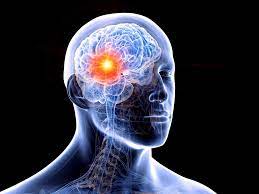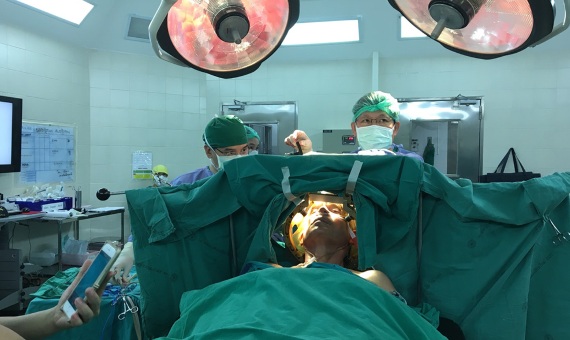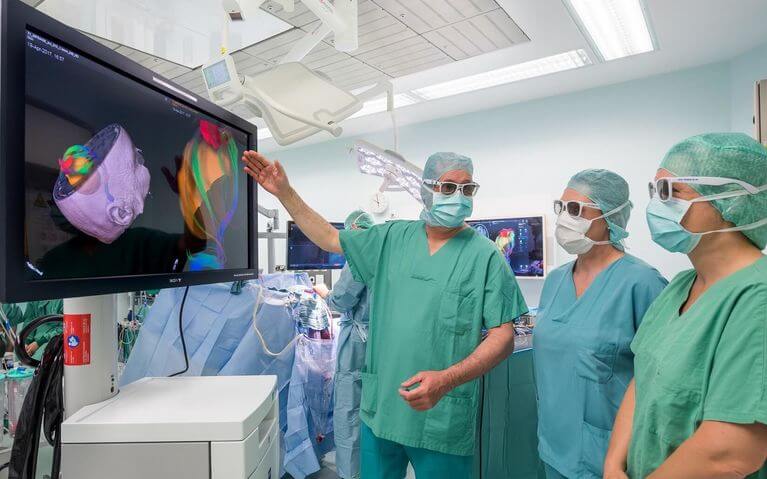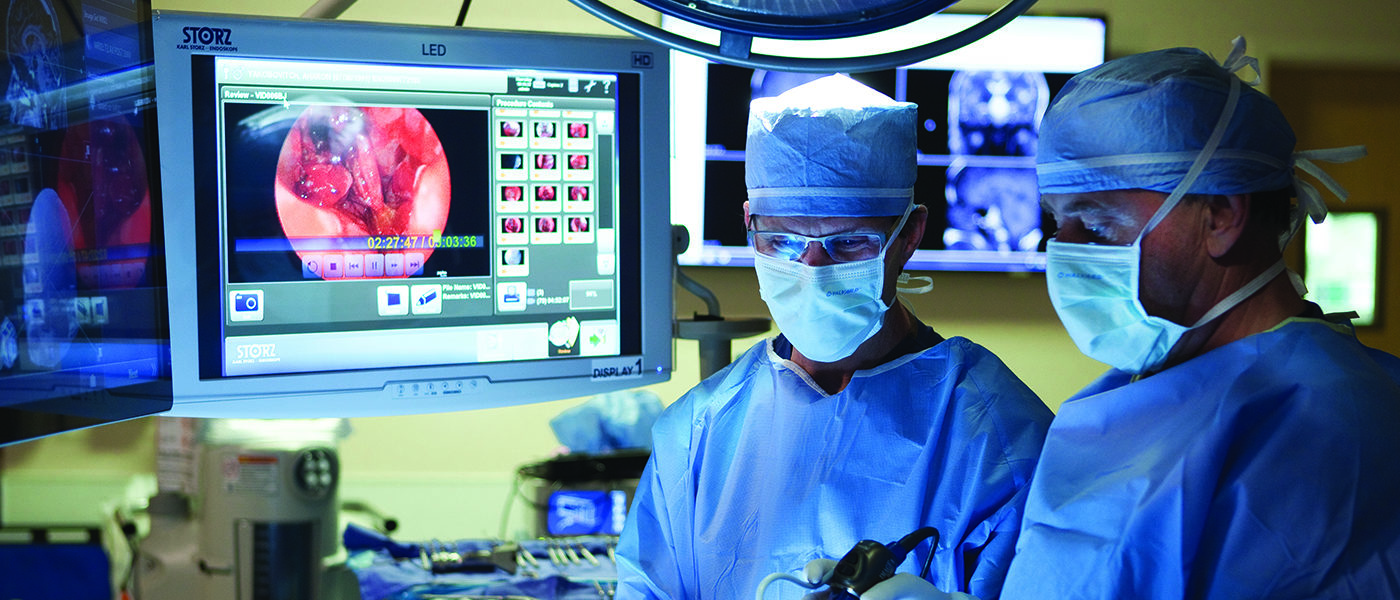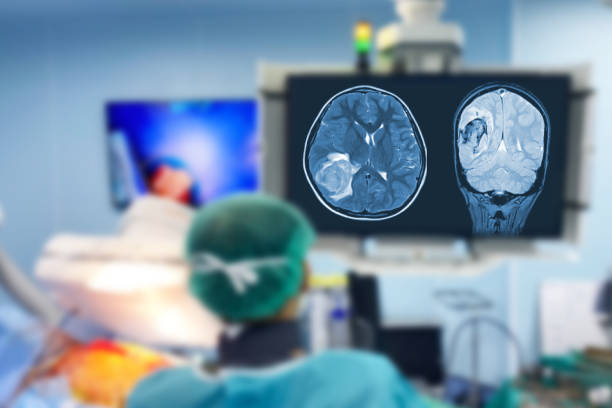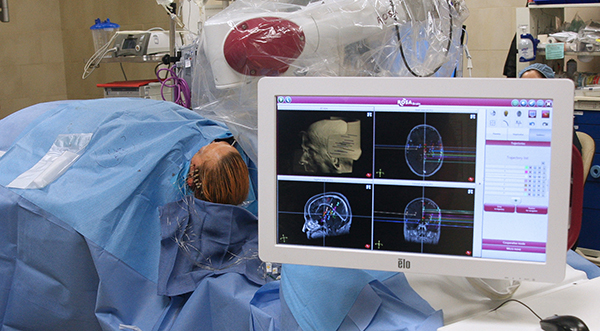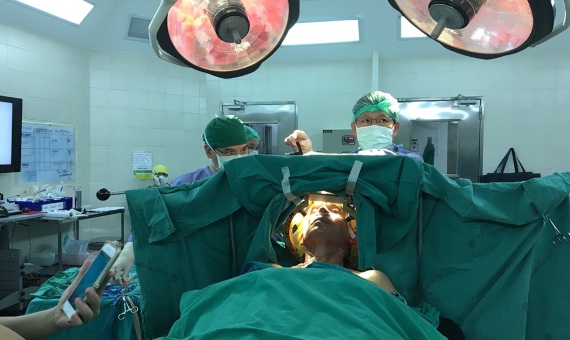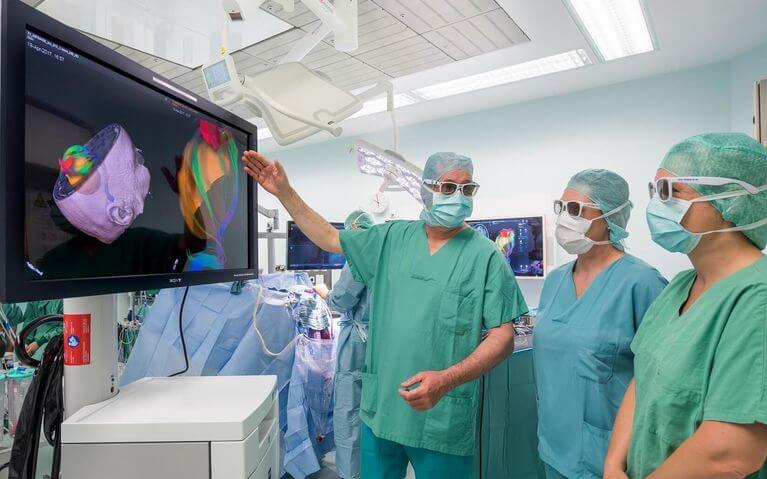Brain Tumor Surgery
India
-
Our Price USD 4590
-
Hospital Price USD 5100
-
You Save : USD 510
Booking Amount: USD 459. Pay Remaining 90% at the hospital.
Book NowAdditional Credit
Among the important extras we offer as part of the Additional Credit are the following:
-
Site Tourism For The Patient & Attendant
-
Airport Pick & Drop Service
-
Ambulance service at airport
-
Priority appointments with The Doctor
-
Cancel Easily Anytime with Full Refund
-
Room Upgradation
-
Free Online Doctor Consultation Valued at USD 20
-
Free hotel Stay for 5 to 7 days Accordingly
-
Welcome Kit at Arrival
-
Interpreter
-
Medical Visa Assistance
What is Included?
- Doctor consultation charges
- Lab tests and diagnostic charges
- Room charges inside hospital during the procedure
- Surgeon Fee
- Cost of implant
- Nursing charges
- Hospital surgery suite charges
- Anesthesia charges
- Routine medicines and routine consumables (bandages, dressings etc.)
- Food and Beverages inside hospital stay for patient and one attendant.
What is not Included?
- Extra Radiology Investigations
- Healthcare Professionals Charges of other consultations.
- Other Requested Services such as Laundry etc.
- Additional Pharmaceutical Products and Medicines After Discharge from Hospital.
- Management of Conditions Unrelated to Procedures or Pre-Existing.
- The cost of any additional implants will be in addition to the package cost.
Package Description
Brain Stem Tumor Surgery
Only when the tumour appears localised on an MRI scan is surgery utilised to treat brain stem glioma (see Diagnosis). This means that in some cases, such as when a tumour develops out of the brain stem rather than into it, it may be possible to remove the tumour without causing damage to the brain.
Basic activities including breathing, heartbeat, and other important functions are controlled by the brainstem, which connects the brain to the spinal cord. Tumors that form in this part of the brain are very difficult to cure, as any intervention can result in severe neurological impairment.
The procedure usually takes 4-6 hours if your surgeon is doing a craniotomy and tumour removal. The procedure takes 3-4 hours if your physician uses a transsphenoidal method to remove your tumour.
Disease Overview:
Neurofibromatosis type 1
Neurofibromatosis type 1 is a disorder that causes skin pigmentation changes and tumour development along nerves in the skin, brain, and other regions of the body. The indications and symptoms of this illness differ greatly from person to person.
Almost all patients with neurofibromatosis type 1 develop several café-au-lait spots, which are flat areas of skin that are darker than the surrounding region, starting in early childhood. As a person gets older, the size and number of these spots increases. Typically, freckles in the underarms and groyne appear later in childhood.
Neurofibromas are noncancerous (benign) tumours that form on or just under the skin in most persons with neurofibromatosis type 1. Nerve tumours can also develop near the spinal cord or along nerves throughout the body. Neurofibromatosis type 1 causes malignant tumours to form along nerves in certain persons. Malignant peripheral nerve sheath tumours are benign tumours that form in adolescence or maturity. Other malignancies, such as brain tumours and cancers of the blood-forming tissue, are more common in people with neurofibromatosis type 1. (leukemia).
Disease Signs and Symptoms:
Lisch nodules, benign growths in the coloured region of the eye, are common in children (the iris). The nodules of Lisch do not obstruct vision. Some people who are impacted get tumours that form along the nerve that connects the eye to the brain (the optic nerve). These tumours, known as optic gliomas, can cause vision loss or complete vision loss. Optic gliomas can have no effect on vision in rare situations.
High blood pressure (hypertension), low height, an abnormally big head (macrocephaly), and skeletal abnormalities such as an abnormal curvature of the spine are all indications and symptoms of neurofibromatosis type 1. (scoliosis). Learning impairments and attention-deficit/hyperactivity disorder (ADHD) are common in patients with neurofibromatosis type 1.
Other Symptoms Can be:
- Cafe au lait spots are flat, light brown dots on the skin
- Freckling in the armpits or groyne.
- Lisch nodules are little lumps on the iris of the eye.
- Neurofibromas are soft, pea-sized lumps on or under the skin.
- Deformities of the bones.
- Optic glioma is a tumour of the optic nerve.
- Learning impairments are a type of learning disability.
Disease Causes:
Neurofibromatosis is caused by genetic alterations that are handed down from one parent to the next or develop spontaneously during pregnancy. The genes involved vary according to the kind of neurofibromatosis: NF1. The NF1 gene is found on chromosome 17 of the human genome.
Neurofibromatosis type 1 is caused by mutations in the NF1 gene. The NF1 gene directs the production of a protein known as neurofibromin. Many cells, including nerve cells and specialised cells surrounding neurons, generate this protein (oligodendrocytes and Schwann cells). Neurofibromin functions as a tumour suppressor, preventing cells from developing and dividing too quickly or uncontrollably. Mutations in the NF1 gene cause a nonfunctional form of neurofibromin to be produced, which is unable to control cell growth and division. As a result, tumours like neurofibromas can grow all over the body along nerves. It's unknown how NF1 gene mutations cause additional neurofibromatosis type 1 symptoms including café-au-lait spots and learning impairments.
Disease Diagnosis:
Neurofibromatosis type 1 is normally diagnosed by a physical examination, during which your doctor searches for symptoms of the disease such as light-brown café-au-lait patches or skin tumours.
- Your doctor will begin with a physical examination and a review of your personal and family medical history.
- Your doctor will look for cafe au lait patches on your skin, which can aid in the diagnosis of NF1.
- If your doctor thinks more tests are needed to diagnose NF1, NF2, or schwannomatosis, he or she may suggest:
- Examine your eyes. Lisch nodules, cataracts, and vision loss can all be detected by an eye doctor.
Exams of hearing and balance. Hearing tests (audiometry), electromystagmography (recording your eye movements with electrodes), and the brainstem auditory evoked response (measuring the electrical signals that transmit sound from the inner ear to the brain) can all be used to detect hearing and balance difficulties in persons with NF2.
Imaging tests are performed. Bone abnormalities, tumours in the brain or spinal cord, and extremely tiny cancers can all be detected via X-rays, CT scans, or MRIs. A magnetic resonance imaging (MRI) scan may be used to diagnose optic gliomas. NF2 and schwannomatosis are often monitored with imaging studies.
Genetic testing are available. NF1 and NF2 tests are available and can be done throughout pregnancy before the baby is delivered.
Inquire about genetic counselling with your doctor. Because additional, undiscovered genes may be involved with the condition, genetic testing may not always detect schwannomatosis. However, some women choose for SMARCB1 and LZTR1 genetic testing before starting a family.
At least two symptoms of NF1 must be present in order to be diagnosed. If your child has only one symptom and no family history of NF1, your doctor will most likely keep an eye on him or her for any subsequent symptoms. NF1 is commonly diagnosed by the age of four. Genetic testing might aid in the diagnosis.
Disease Treatment:
Neurofibromatosis does not have a cure, although the signs and symptoms can be controlled. The sooner someone is treated by a neurofibromatosis specialist, the higher the chances of a positive outcome.
Monitoring
If your kid has NF1, your doctor will most likely urge yearly checks for the following reasons:
- Examine your child's skin for new neurofibromas or changes in those that already present.
- Keep an eye out for indicators of high blood pressure.
- Assess your child's growth and development, including height, weight, and head circumference, using the growth charts for children with NF1 that are available.
- Keep an eye out for indicators of early puberty.
- Examine your youngster for any skeletal abnormalities or changes.
- Examine your child's academic achievement and learning growth.
- Get a thorough eye examination.
If you detect any changes in your signs or symptoms between visits, call your doctor right away. Many NF1 problems can be adequately managed if treatment begins early.
Medication
Selumetinib (Koselugo) is a medication for children with plexiform neurofibroma. Similar medications are presently undergoing clinical studies in both children and adults.
Surgical operations and other procedures
To treat severe symptoms or problems of neurofibromatosis, your doctor may consider surgery or other procedures.
Tumors are removed by surgery. Tumors that are squeezing neighbouring tissue or causing organ damage might be removed whole or in part to alleviate symptoms. If you have NF2 and have had hearing loss, brainstem compression, or tumour development, your doctor may suggest surgery to remove the acoustic neuromas that are giving you problems.
In those with schwannomatosis, complete excision of schwannomas can significantly reduce discomfort.
Radiosurgery with stereotactic accuracy. This method does not require an incision and delivers radiation to your tumour accurately. If you have NF2, stereotactic radiosurgery may be an option for removing acoustic neuromas. Stereotactic radiosurgery is a procedure that can help you keep your hearing.
Cochlear implants and auditory brainstem implants are two types of implants. If you have NF2 and hearing loss, these gadgets may be able to help.
Treatment for cancer
Standard cancer treatments, such as surgery, chemotherapy, and radiation therapy, are used to treat malignant tumours and other malignancies associated with neurofibromatosis. The most significant components in a positive result are early diagnosis and treatment.
Pain relievers: Pain management is an essential element of schwannomatosis therapy.
Information related to Treatment
Package Details
Days in Hospital
7 Days
Days in Hotel
*
14 Days
Room Type
Private
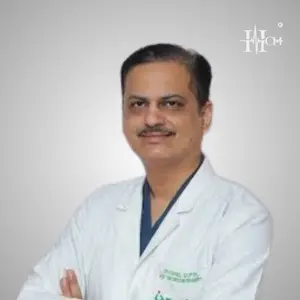
Treating Doctor
Dr Rahul Gupta
Neuro surgeon- Spine Surgery, Brain Tumour Surgery, Endovascular Neurosurgeon, microscopic surgery, Meningiomas, Craniopharyngioma, Brain Tumor Surgery, Cranio Vertebral anomalies, Intraventricular Tumour Surgery, Skull Base Anterior Surgery, Pituitary Adenoma including endonasal, Endoscopic Acoustic Schwanomas, CSF rhinorrhia, Cerebrovascular Neurosurgery
Fortis Hospital Noida Noida, India
27 Years of Experience
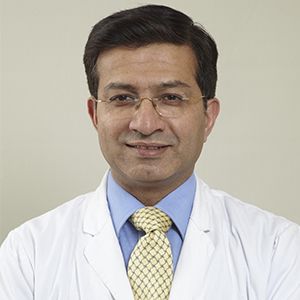
Treating Doctor
Prof. (Col.) Dr. Bipin Walia
Neuro surgeon- Spine Surgery, Brain Tumour Surgery, Minimally Invasive Spine Surgery, Kyphoplasty, Brain suite, Laminectomy, Traumatic brain injury (tbi) treatment, Cervical Disc Replacement
Max Super Speciality Hospital New Delhi, India
26 Years of Experience
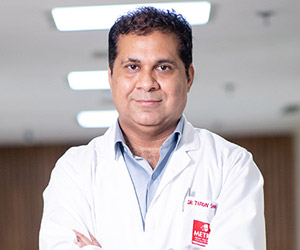
Treating Doctor
Dr Tarun Sharma
Neuro surgeon,Spine Surgeon- Peripheral nerve, Pediatric neurosurgery, Epileptic Surgery, Vagus nerve stimulation (VNS) therapy, Dural arteriovenous fistulas (DAVFs) of the brain and spinal cord, Foot Drop, Foot Drop Spinal Surgery, Petrosal Sinus Sampling
Metro Hospital (Heart Institute with Multispeciality) Faridabad, India
18 Years of Experience
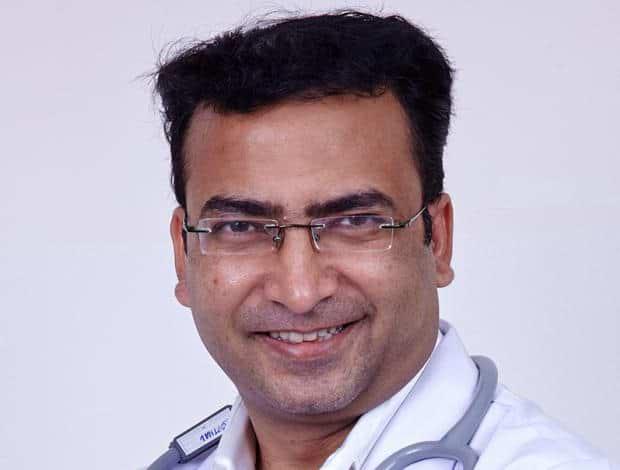
Treating Doctor
Dr. Praveen Gupta
Neurologist- Stroke Intervention, Stroke Rehabilitation, Celebral Palsy, Advanced Second line management for multiple scleoris, Epileptic Surgery, DBS Surgery
Fortis Memorial Research Institute Gurgaon, India
18 Years of Experience
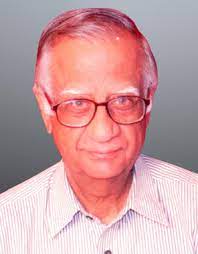
Treating Doctor
Dr. Ravi Bhatia
Neuro surgeon- Neuro Oncology, Craniovertebral Junction (CVJ) Anomalies, Brain and Spine Tumors, Celebrovasculkar Surgey
Indraprastha Apollo Hospitals, New Delhi New Delhi, India
60 Years of Experience
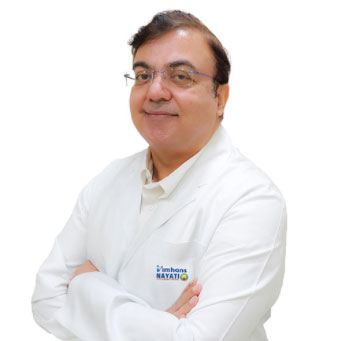
Treating Doctor
Dr. Shamsher Dwivedee
Neurologist- Alzheimer Specialist, Epilepsy Disorder, Stroke Specialist, Headache Specialist, Sleep Disorder, Parkinson's Disease, Dementias, Neuromuscular Disorders
Vimhans Nayati Super Speciality Hospital New Delhi, India
33 Years of Experience
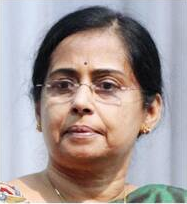
Treating Doctor
Dr. Asha Kishore
Neurologist- Ankle surgery, Knee Replacement, Hip resurfacing with computer navigation, Anthroscopic Meniscus Surgery, ACL Reconstruction Procedure
Aster Medcity, Kochi Cochin, India
31 Years of Experience
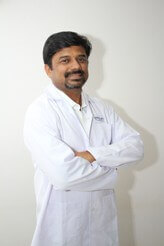
Treating Doctor
Dr. Harshil Shah
Neuro surgeon- Spine Surgery, Traumatic Brain Injury, Traumatic Brain Injury, Skull Base Surgery, Spine Surgery, Managing trigeminal autonomic cephalalgia, Spine Surgery, Brain Surgery and Brain Aneursym Surgery, Spinal instrumentation, Endoscopic Neurosurgery, Pituitary Surgery, Spine Surgery, Spine Surgery, Spine Surgery
Shalby Multi-Specialty Hospitals, Ahmedabad Ahmedabad, India
16 Years of Experience
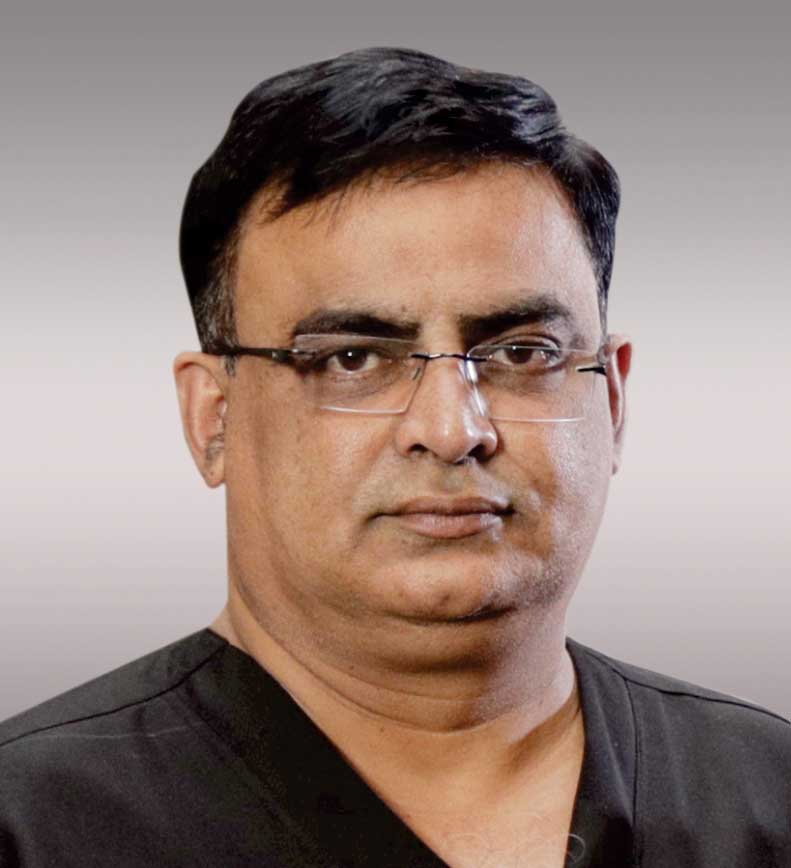
Treating Doctor
Dr Sandip S. Shah
Neuro surgeon- Interventional radiology, Vascular Surgeon, Vascular Surgeon, Neuro Oncology, Skull Base Surgery, Neuro Oncology, Endoscopic Neurosurgery
Marengo CIMS Hospital, Ahmedabad Ahmedabad, India
24 Years of Experience
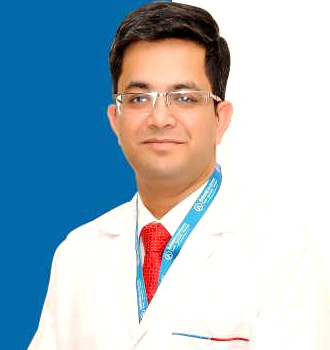
Treating Doctor
Dr. Nagesh Chandra
Neuro surgeon,Spine Surgeon- Endovascular Neurosurgeon, Minimal Invasive Neurosurgery, Minimally Invasive Spine Surgery, Brain and Spine Tumors, Aneursym, Hydrocephalus, Traumatic Head & Spine Injuries & Stroke Surgery, Arteriovenous malformations (AVMs), Dural arteriovenous fistulas (DAVFs) of the brain and spinal cord, Brain Meningiomas, Neurological trauma, Spinal Disorders
Aakash Healthcare Super Speciality Hospital New Delhi, India
20 Years of Experience
Similar Packages
Frequently Asked Questions
In India, there are numerous hospitals that offer brain tumor treatment. The following are a few of India's most well-known hospitals for brain tumor treatment: 1- Medanta - The Medicity 2- Fortis Memorial Research Institute, Gurugram 3- Fortis Hospital, Mulund 4- Medeor Hospital 5- Fortis Hiranandani Hospital 6- IBS Hospital 7- Artemis Health Institute 8- Global Health City 9- Sterling Wockhardt Hospital
The cost of treating brain tumors differs throughout Indian hospitals. The finest hospitals for treating brain tumors provide a complete package that includes all costs associated with the patient's care and investigations. Hospitalization, surgery, nursing, medication, and anesthetic costs are typically included in the treatment cost. The cost of brain tumour treatment in India may go up if a patient needs to stay longer in the hospital owing to a delayed recovery, a new diagnosis, or post-operative problems.
The following are a few well-known Indian cities that provide brain tumor treatment: Hyderabad Chennai Gurugram Mohali
1. Dr. Vinod Puri: Neurologist, Max Super Specialty Hospital, Saket, Delhi, 48 Years experience. 3. Dr. Sonal Gupta: Neurosurgeon, Fortis Hospital, Shalimar Bagh, 29 Years Experience. 2. Dr. Rahul Gupta: Spine and Neurosurgeon, Fortis Hospital, Noida, 20 Years Experience. 5. Dr. Manish Vaish: Neurosurgeon, Max Super Specialty Hospital, Vaishali, 25 Years Experience. 4. Dr. Madhukar Bharadwaj: Neurologist, Aakash Healthcare Super Specialty Hospital, Delhi, 16 Years Experience.
India is well known throughout the world for providing affordable treatment for brain tumors. Numerous individuals travel to India from all over the world to receive the finest possible care for their brain tumors. One of the main reasons so many overseas patients travel to India is the country's reputation for producing highly qualified medical experts in the field of brain tumor treatment. Patients at Indian hospitals receive the best possible care from both medical and non-medical personnel, who are also well trained, certified, and experienced in their fields. When compared to other nations, brain tumor surgery costs are lower in India.

